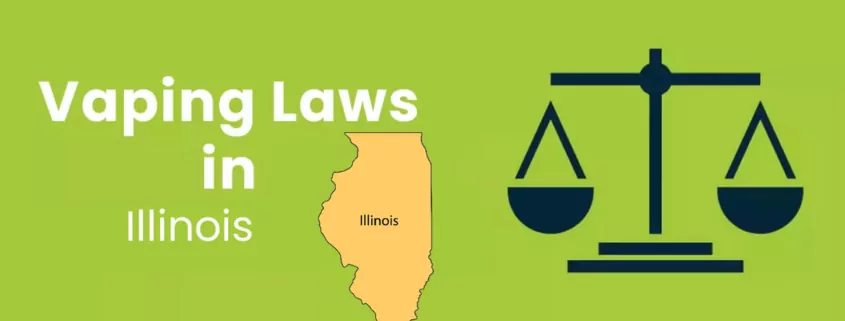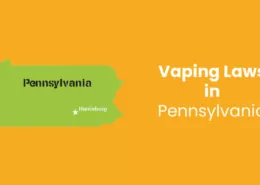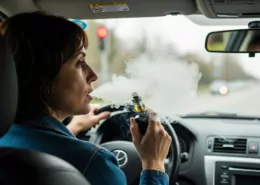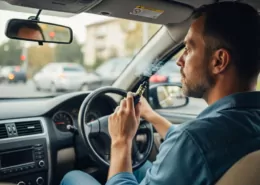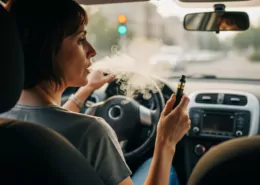Vaping Laws in Illinois: A Comprehensive Guide 2025 Updated
Illinois has progressively strengthened its stance on vaping and e-cigarette use, implementing a series of regulations designed to protect public health, particularly by curbing youth access and reducing exposure to secondhand aerosol.
As of mid-2025, the Land of Lincoln has a multifaceted legal framework that governs the sale, distribution, marketing, and use of all electronic smoking devices. For residents, visitors, retailers, and manufacturers, understanding these evolving laws – from the strict “Tobacco 21” mandate and comprehensive indoor public use bans to new restrictions on shipping and marketing – is crucial for compliance. This guide provides an in-depth look at Illinois’s current vaping laws, incorporating recent legislative updates and authoritative sources to help you navigate this regulatory landscape.
The Foundation of Vaping Laws in Illinois
At the heart of Illinois’s approach to vaping is a clear focus on preventing underage access, supported by both state and federal law, alongside specific definitions that categorize these products for regulatory purposes.
Defining “Electronic Cigarette”
Illinois law employs a broad definition of “electronic cigarette” to ensure comprehensive regulatory coverage. This definition typically encompasses:
- Any device that uses a battery or other mechanism (like a mechanical heating element or electronic circuit) to heat a solution or substance to produce a vapor or aerosol intended for inhalation.
- This includes any e-cigarette, electronic cigar, electronic cigarillo, electronic pipe, electronic hookah, vape pen, or similar product or device.
- It also includes any cartridge or other container of a solution or substance intended for use with or to refill such a device, irrespective of whether the solution or substance contains nicotine.
This broad scope ensures that both nicotine-containing and nicotine-free vaping products, as well as their components, fall under the state’s regulatory framework. Cannabis-exclusive vaping devices are generally excluded as they fall under different specific cannabis regulations.
Minimum Legal Sales Age: Strictly 21
Illinois was proactive in addressing youth access, enacting its “Tobacco 21” legislation effective July 1, 2019. This law raised the minimum legal age to purchase all tobacco products, including e-cigarettes, vaping devices, and e-liquids, from 18 to 21 years old. This state action predated and now aligns with the federal Tobacco 21 law, which took effect nationwide in December 2019. This unified age restriction is a cornerstone of efforts to prevent nicotine addiction among young people.
Retailers across Illinois are legally mandated to verify the age of any purchaser who appears to be under 30 years old by checking a valid government-issued photographic identification. Selling, distributing, or even facilitating the acquisition of tobacco or vaping products to individuals under 21 is a serious offense. Penalties for retailers can include significant fines and, for repeated violations, potential suspension or revocation of their license to sell these products. Notably, the Illinois Tobacco 21 law also shifted enforcement focus primarily onto retailers rather than penalizing underage individuals for mere possession, though using a fake ID to purchase remains an offense. Furthermore, individuals under 16 are generally prohibited from selling e-cigarettes at retail establishments, unless it’s a family-owned business.

Where Vaping is Prohibited in Illinois
A change in Illinois’s vaping regulation occurred with the amendment of the long-standing Smoke-Free Illinois Act. Effective January 1, 2024, this act was expanded (via Public Act 103-0272, formerly House Bill 1540) to include electronic smoking devices, thereby prohibiting vaping in virtually all indoor public places and workplaces across the state.
This comprehensive indoor vaping ban means that using e-cigarettes is now illegal in the same places where traditional smoking has long been forbidden. These locations include, but are not limited to:
- Restaurants and bars
- Offices and other places of employment
- Retail stores and shopping malls
- Theaters and entertainment venues
- Schools (K-12 and higher education campuses)
- Polling places
- Government buildings
- Healthcare facilities and hospitals
- Public transportation (trains, buses)
- Private clubs and gaming facilities
Furthermore, the prohibition extends beyond just indoor spaces. Vaping is also explicitly banned within 15 feet of entrances, exits, open windows, and ventilation intakes of these public facilities and workplaces. This “buffer zone” is designed to protect individuals from exposure to aerosol plumes even before entering or after exiting a building.
Businesses are required to display clear signage indicating the prohibition of both smoking and vaping on their premises. The Illinois Department of Public Health (IDPH) provides resources, including free downloadable signs, to help businesses comply. Violators of this indoor vaping ban face fines: individuals can be fined $100 for a first offense and $250 for subsequent offenses, while business owners allowing vaping on their premises face escalating penalties starting at $250. A grace period for education and warnings was initially provided until March 31, 2024, before strict fine enforcement began.
Sales, Shipping, and Marketing Regulations
Illinois has implemented specific rules governing how vaping products can be sold, distributed, and marketed, with a strong emphasis on preventing youth access and deceptive practices.
Shipping and Online Sales Restrictions
A significant legislative development targeting youth access through remote sales is Senate Bill 3098, which took effect on January 1, 2025. This law prohibits the direct shipment of e-cigarettes and related products purchased online or through mail order to individual consumers within Illinois. The sole exception is for shipments made directly to licensed distributors or retailers within the state. This measure is a direct response to concerns that online sales have made it “very easy” for minors to circumvent age restrictions and obtain vaping products. It aims to ensure that all sales of vaping products occur through regulated channels where proper age verification can be more effectively enforced.
Product Regulations and Marketing Restricts
Illinois law also addresses the marketing and packaging of e-cigarettes to prevent deceptive practices and protect consumers, particularly youth:
- Child-Resistant Packaging: E-liquids must be sold in child-resistant packaging, with an exception for products sold in “sealed, pre-filled, or disposable replacement cartridges” not intended to be opened by the consumer.
- Prohibition of Deceptive Marketing: Effective January 1, 2025, electronic cigarette companies are prohibited from advertising, marketing, or promoting their products in ways that are likely to deceive parents or cause confusion with non-tobacco products. This includes a ban on marketing e-cigarettes as “modified risk tobacco products” unless specifically authorized by the FDA. A particular focus of this legislation is to ban e-cigarettes designed to resemble school supplies such as highlighters, erasers, and pencil sharpeners, which can make them easy to conceal in educational settings. Retailers violating this specific marketing law face fines up to $10,000 and potential suspension of state licenses.
- Flavor Ban Status: As of mid-2025, there is no statewide ban on flavored e-cigarettes in Illinois. However, proposed legislation like House Bill 3191 (introduced March 2025) aims to prohibit all flavored electronic cigarettes, including menthol and products creating cooling sensations, and includes provisions for inspections, enforcement, and penalties related to such a ban. The status of this bill requires ongoing monitoring. Federal FDA enforcement actions also target unauthorized flavored disposable vapes nationwide.
Taxation of Vaping Products in Illinois
Illinois imposes a state excise tax on vaping products, including both nicotine and non-nicotine e-liquids. The tax rate is 15% of the wholesale price of these products. This tax is in addition to standard state and local sales taxes and contributes to the higher cost of vaping products for consumers. The revenue generated is often directed towards public health programs and state funds.
Ecigator is one of the well-known vape brands spun off from FM Technology Co., Ltd, it’s an ISO-certified disposable vape manufacturer for OEMs, ODMs, and OBM since 2010. The founder team comes from top firms with more than 10 years of experience in the vaping industry and has devoted thousands of hours to providing users with a better and better experience.
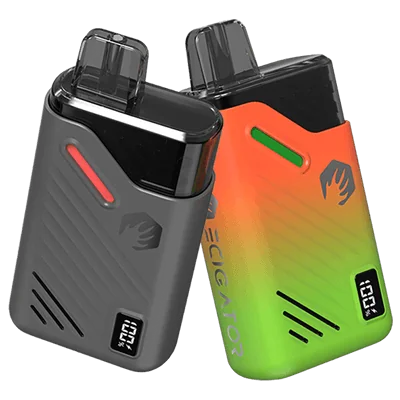
18K Disposable Pod Kit
Disposable Pod Kit – 18ml changeable pod with 650mAh rechargeable battery.
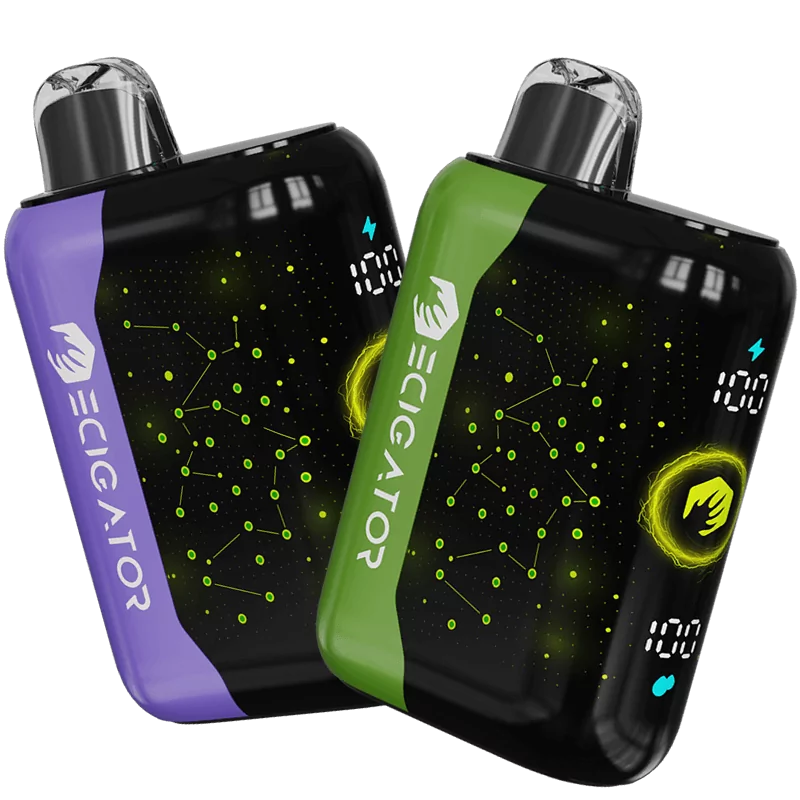
35K with Large Screen
35000 Puffs Disposable Vape with 3D galaxy screen. Eco and Pulse working modes.
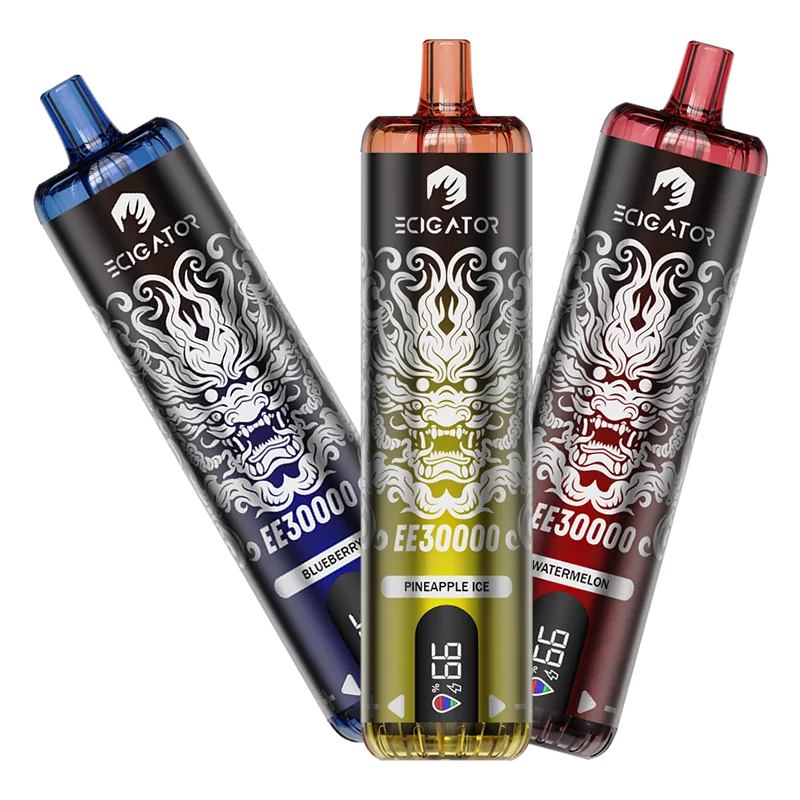
30K DTL Disposable
30K Puffs DTL(Directly to Lung) disposable vape with airflow control and screen.
Enforcement and Public Health Context
The Illinois Department of Public Health (IDPH) plays a central role in enforcing the state’s vaping laws and in promoting public awareness about the associated health risks. The IDPH emphasizes that e-cigarettes contain nicotine (a highly addictive chemical) and other potentially harmful substances that can lead to lung damage. Consumers are encouraged to report violations of the indoor smoking/vaping ban through official channels like the smoke-free.illinois.gov website, fostering community involvement in upholding these important public health regulations.
The state’s policies reflect growing concerns among healthcare professionals and legislators about the high rates of vaping, particularly among youth and young adults. The attraction of flavored products and the ease of online accessibility (prior to the 2025 shipping ban) were identified as significant drivers of youth vaping, prompting Illinois to adopt stricter regulations that increasingly mirror traditional tobacco control laws.
Conclusion: Illinois’s Proactive Stance on Vaping Regulation
Illinois has clearly established itself as a state taking a proactive and comprehensive approach to vaping regulation. With the “Tobacco 21” law firmly in place, a sweeping indoor public use ban that now includes e-cigarettes, new stringent restrictions on direct-to-consumer shipping effective in 2025, and ongoing efforts to curb deceptive marketing, the state has built a robust framework. These multifaceted laws, which are continually refined, aim to significantly curb the rise of vaping, reduce nicotine addiction (especially among youth), and safeguard all residents from exposure to secondhand aerosol. The proactive stance of Illinois, coupled with ongoing enforcement and public education initiatives, underscores a long-term vision for a healthier, smoke-free, and vape-aware future for its communities. All stakeholders, from individual consumers to retail businesses, must remain vigilant and informed to ensure compliance with this evolving regulatory environment.
References
- LegiScan – Illinois HB3191 Text (Proposed 2025 Flavor Ban)
- Tobacco21.org – Illinois is Now a Tobacco 21 State (June 2019)
- Illinois.gov – Governor Pritzker Signs Legislation Raising Tobacco Purchasing Age to 21 (June 2019)
- Respiratory Health Association – Illinois Tobacco 21 Retailer Fact Sheet (June 2019)
- Illinois Policy – Illinois indoor vaping ban starts on New Year’s Day (Dec 2023)
- Vapeals – Illinois New E-cig Laws Restrict (Jan 2025 marketing ban)
- Ecigator News – Illinois E-cigarette Restrictions 2025 (Marketing ban)
- LegiScan – Illinois HB1732 Text (2025 Proposed – General tobacco bill)
- IDPH – E-Cigarettes and Vapes Information
- Illinois General Assembly – Smoke Free Illinois Act (Full Text)

